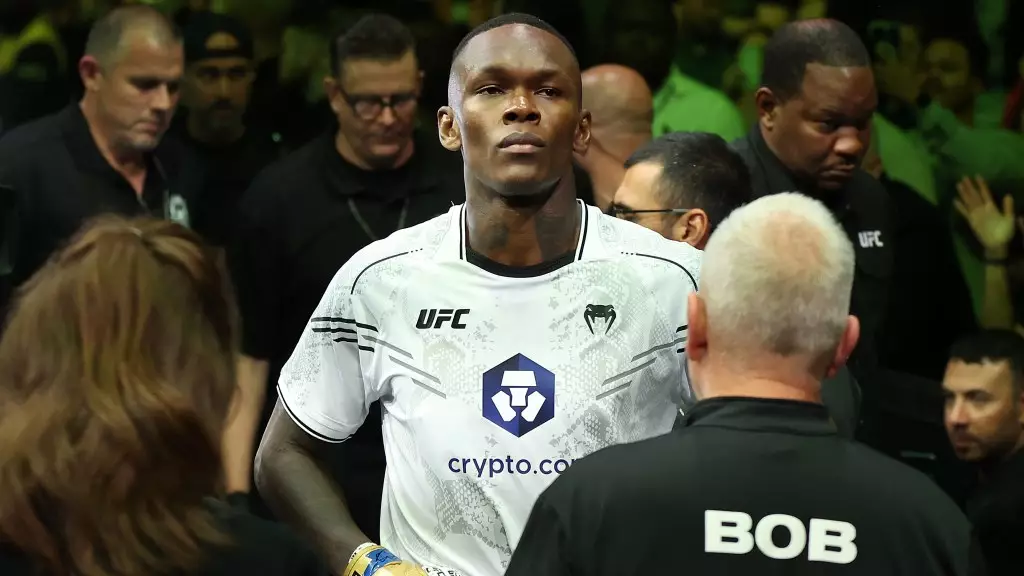Israel Adesanya, the former UFC middleweight champion with a professional record of 24 wins and 4 losses, is set to embark on his first non-title bout in six years. This transition comes after a significant period filled with high-profile title campaigns that, despite their challenges, allowed Adesanya to solidify his place in UFC history. Preparing to face Nassourdine Imavov in Riyadh, Saudi Arabia, on February 1, Adesanya expresses that his mindset remains undeterred, revealing a calm perspective after enduring back-to-back defeats against top-tier competitors.
Adesanya’s experience in the UFC has not only been marked by victories but also by intense rivalries that have added layers to his narrative. The heat from his recent clashes, especially the racially charged exchanges with Dricus Du Plessis prior to UFC 290, creates an atmosphere of tension that often accompanies high-stakes matchups. However, Adesanya has displayed remarkable resilience by accepting his losses and maintaining focus on personal growth rather than succumbing to disappointment.
In conversations surrounding his performance, Adesanya is candid about his feelings toward his last encounter, stating that it did not significantly weigh on him and asserting that he did his best in preparation. Such honesty reflects a mature attitude rare in athletes who frequently face the pressure of public expectation. By emphasizing his readiness and physical condition during the fight, Adesanya is laying the groundwork for a stronger comeback, proving his dedication to continual improvement.
The shift from headlining pay-per-view events to participating in a standard Fight Night does introduce a different element to Adesanya’s experience, yet the fighter insists that the core essence of competition remains unchanged. He dismisses concerns about the implications of fighting in a non-title format, reflecting a deeper understanding of what it means to compete—reminding fans and critics alike that the fundamental aspects of the sport endure irrespective of title stakes.
Adesanya’s situation encapsulates a broader narrative within combat sports: success may not solely be defined by the titles one holds but also by the personal growth and improvement seen over time. As he prepares for what is viewed as a significant departure from his title reign, Adesanya has turned this challenge into an opportunity to recalibrate his focus and expand his legacy beyond the championship belts.
His upcoming bout against Imavov can be interpreted as a pivotal moment—an opportunity to reinforce his status in the middleweight division while simultaneously displaying his resilience. Adesanya emerges not just as a fighter vying for titles, but as an athlete who understands the manifold dimensions of success. Ultimately, his ability to navigate this transition phase with poise suggests that Israel Adesanya may well redefine what it means to be a champion, both in triumph and in adversity.

